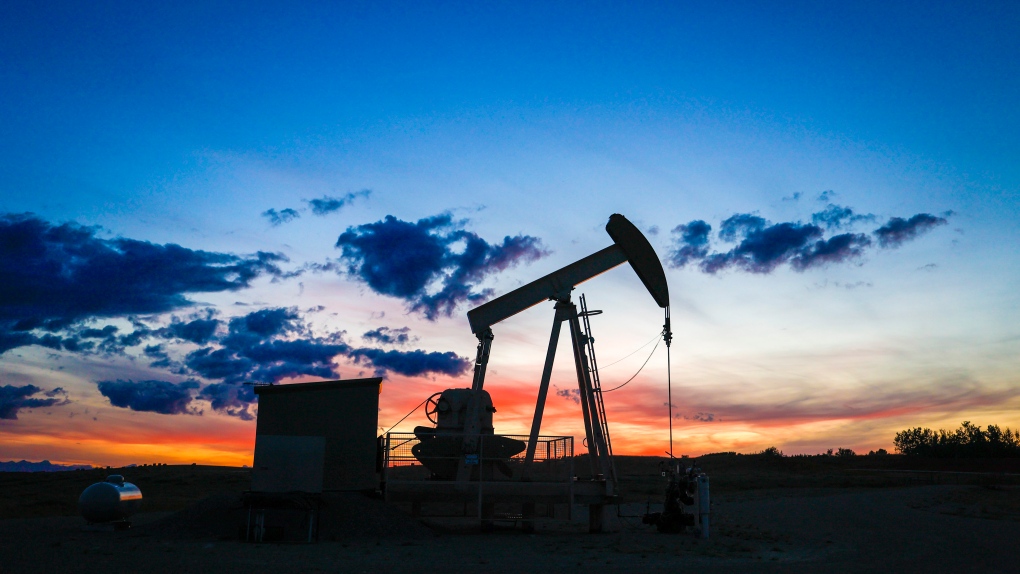Alberta oil and gas sector on track for record production ahead of Trans Mountain completion

Alberta’s energy sector is set for a record year in production according to analysts, following the province’s best January ever.
According to ATB, crude oil is seeing increased production with 3.81 million barrels per day in January.
That follows a record-setting year of 1.4 billion barrels of oil produced in 2023.
“Right now, we see us going into the turnaround season in western Canada which will pull off pressure on the overall basin last through most of the middle part of the year,” says Kevin Birn, an analyst with S&P Global Commodity Insights.
“But as we head towards the winter of next year, we see production building, we see production hitting record heights again.”
Next month, the multi-billion dollar Trans Mountain (TMX) pipeline expansion is expected to begin filling up, and triple the capacity of the pipeline to 890,000 barrels daily.
“And that’s really the importance of TMX. We see the need for that pipeline to be online to catch those volumes,” said Birn.
“Otherwise, western Canada has the potential to produce over takeaway capacity.”
Birn says that the additional capacity will help stabilize the price of Western Canada Select (WCS) in comparison to West Texas Intermediate (WTI) after it fluctuated in the past around three dollars a barrel.
Birn adds that Canada produced about 4.9 million barrels daily in 2023, expected to reach 5.2 million this year.
In 2025, that number is expected to be even higher.
“That system we think will operate within two or any less than three years north of 90 percent,” he said.
“So we’re talking about a system, which means over five million barrels per day operating at 90 per cent. That doesn’t leave a lot of excess capacity to absorb if something happened to the system, should a major refinery go down, and that could leave the western Canadian system over the longer periods susceptible to price volatility in the winter months.”
Lisa Baiton, the president and CEO of the Canadian Association of Petroleum Producers, said there’s room for “cautious optimism” with production levels high and the Trans Mountain expansion coming soon.
“We are also moving closer to seeing the completion of Canada’s first globally significant liquefied natural gas export facility in British Columbia, expected in 2025,” Baiton said in an emailed statement.
“Despite these positive trends, there remains a sense of caution largely due to the ongoing uncertainty surrounding proposed emissions policy in Canada, which continues to be a significant factor in investment decisions.”
Calgary-based oil and gas giant Cenovus Energy Inc. believes the federal government is not helping companies support the carbon capture system.
With plans to boost capacity by nearly 20 per cent in the next five years, the company says Ottawa is not helping create the industry’s carbon capture, utilization and storage (CCUS), worth around $16.5 billion.
“Can’t start construction of a CO2 pipeline or sequestration hub without regulatory approval,” said Rhona DelFrari, Cenovus’ chief sustainability officer and executive vice president, on Tuesday in an investor presentation.
She says a BMO study says there is not enough incentive for some companies.
“The government funding partnerships in Canada are not enough for large-scale CCUS to proceed in the oil sands,” said DelFrari.
“To achieve emissions reductions, Canada is employing a complex, multi-layered and evolving stick-based approach with some carrots thrown in. Our closest neighbour to the south is using a straightforward pure carrot approach. That’s far more attractive for CCUS projects.”
Calgary-Skyview Liberal MP George Chahal says it takes everyone involved to strive to achieve carbon neutrality.
“There’s a number of incentives in place and we need those companies to step up and put the investment in the ground,” he said.
“This is a great opportunity for the province of Alberta to decarbonize.”
Cenovus plans to reduce greenhouse gas emissions by 35 percent by the end of 2035 while refusing upstream methane emissions by 80 per cent by year-end 2028.
Its long-term goal is to be net zero from operation by 2050.
View original article here Source









